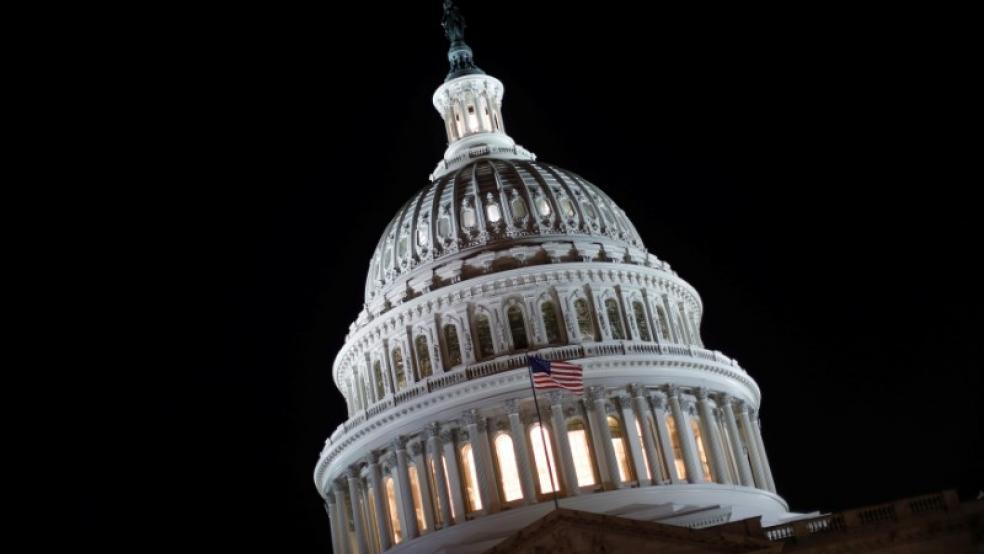Camels, an old joke goes, look like the only animal designed by committee. Increasingly, what started out as a sleek and simple notion – repealing the Affordable Care Act (ACA), better known as Obamacare – has turned into a committee-designed monstrosity of its own. And unlike the camel, it’s unclear whether the American Health Care Act (AHCA) has enough legs to move out of Congress and down Pennsylvania to the White House. And time is running out for consumers in Iowa and other states to return to rational health-insurance markets.
For most of the past seven years, repealing Obamacare meant just that: a repeal of the entire ACA, or at least as much as one could fit within the reconciliation process. However, a funny thing happened on the way to their first Congressional forum with full majority control in Washington. Republicans started worrying about whether voters really wanted a full repeal, or just relief from federal mandates – a rational concern, borne out by polling since the election, which has demonstrated a dramatic reversal in Obamacare support. The question became more complicated by promises from Donald Trump, both before and after the election, that repealing Obamacare meant replacing it immediately with something better, not just a return to the status quo ante pre-ACA.
Related: Trump Team Could Pull the Plug on Obamacare Subsidies for 2018
With the House Republicans under pressure to come up with a somewhat comprehensive alternative rather than just a straight repeal, the AHCA became the camel of legislative bills. Its basic framework consisted of merging the 2015 repeal bill with a framework of reforms to ensure a smoother transition. But the original CBO score of the bill spooked both moderates and conservatives – the former over a coverage retreat, and the latter over projections of premium increases in the short term. The coalition fell apart in late March as Republican leadership and the White House engaged in a game of whack-a-mole, applying amendments that appeased one side while losing support on the other.
That process has continued right through this week. GOP leadership expanded state authority to determine essential health benefits (EHBs) to win conservative converts; but to hold moderates, they offered federal waivers. To win moderates, legislators added more requirements for coverage of pre-existing conditions; but to hold conservatives, they allowed states to set up their own high-risk pools—again, with federal supervision. The final version, assuming we’ve seen it, looks more like a half-executed devolution of Obamacare to the states that comes close to an initial proposal from Senators Bill Cassidy and Susan Collins in January.
As of now, it appears that the House Republican caucus may finally have enough support to bring the AHCA to a vote this week, if not today. From there, though, the AHCA appears to have no future in its present form. The Senate Republican caucus has made it clear that they dislike the House approach and plan to start over from scratch, even while keeping the AHCA bill framework for parliamentary purposes. That even turned into a selling point this week in the House. Rep. Peter King (R-NY) told Bloomberg News, “I would hope it gets changed over there,” a sentiment shared by other “center-right members,” according to The Washington Post.
Related: Why Trump May Be Better Off With Another Obamacare Repeal Failure
All of this might make for a fine absurdist comedy about Washington DC if it weren’t for the ongoing collapse of Obamacare exchanges and the destruction of the individual insurance market. This week alone, the retreat from that market has grown even more serious. Aetna, one of the largest insurers in these markets, announced Tuesday that it would “significantly reduc[e] its exposure” further in 2018, after dropping from 15 states to four in 2017. A month earlier, Aetna had announced that it would drop out of the Iowa market; on Wednesday, they also announced a withdrawal from Virginia citing “an uncertain outlook for the individual marketplace.”
Iowa may well wind up with no insurers at all for most of its consumers. Aetna’s withdrawal left Minnesota-based Medica as the last statewide provider, but they sounded the retreat on Wednesday as well. “Without swift action by the state or Congress to provide stability to Iowa’s individual insurance market,” the company announced, “Medica will not be able to serve the citizens of Iowa in the manner and breadth that we do today.”
Related: Renewed Fight Over Obamacare Could Prompt Government Shutdown
This collapse began well before Donald Trump won the election. Insurers began pulling out of the individual markets in earnest two years ago. Minnesota had to resort to rationing enrollments to keep insurers from fleeing the state last year, and Governor Mark Dayton warned that the rationing would not work for long. The federally subsidized co-ops have almost all collapsed, again well ahead of Republican control of the White House, thanks to the impossible contradictions of Obamacare mandates. The crisis started long before the first stirrings of the AHCA, and a states-rights version of the ACA isn’t likely to solve the main problems of contradictory mandates and impossible risk allocations.
Unfortunately for Republicans, all that is prolog. The crisis may not have originated with them, but they’re in charge now, and voters expect them to govern. Republicans and the White House must put a new plan in place to avoid a complete collapse while insurers can still retool for a free-market system. Time is running out, and the stakes run much higher than the momentary optics of just passing something to kick the can to the other side of the Capitol. If the AHCA can’t deliver those free-market reforms, then the Senate needs to start from scratch, and immediately.






